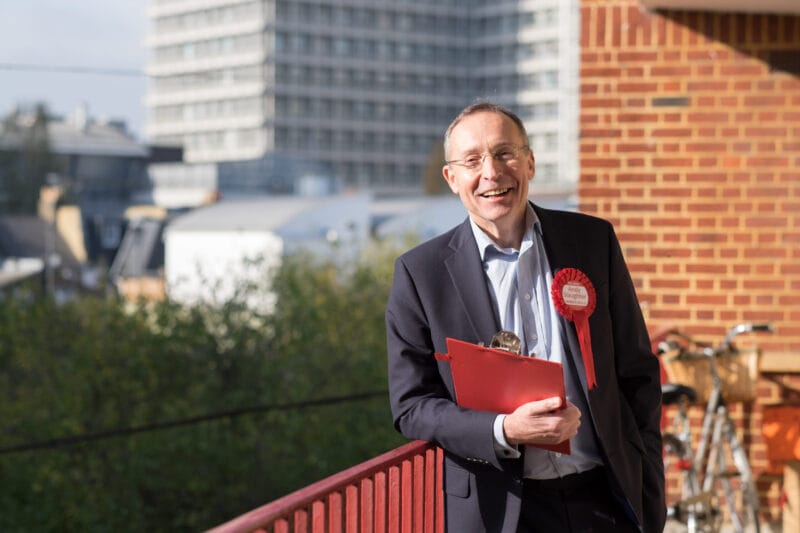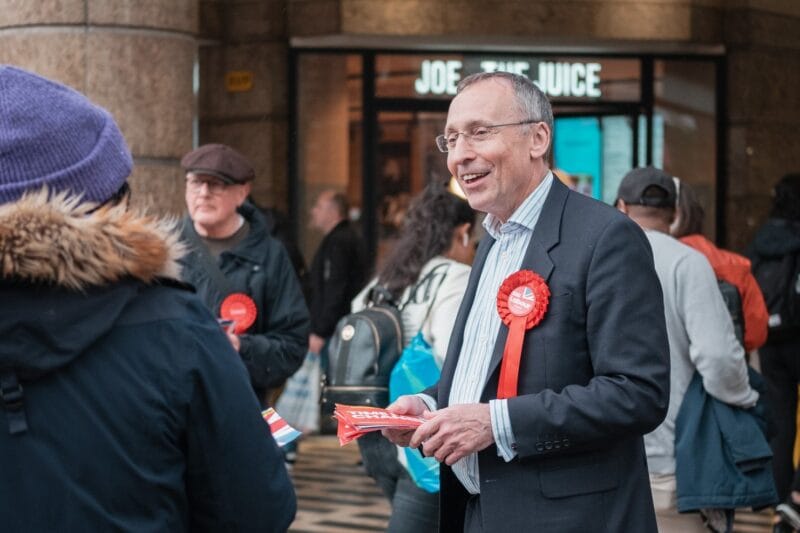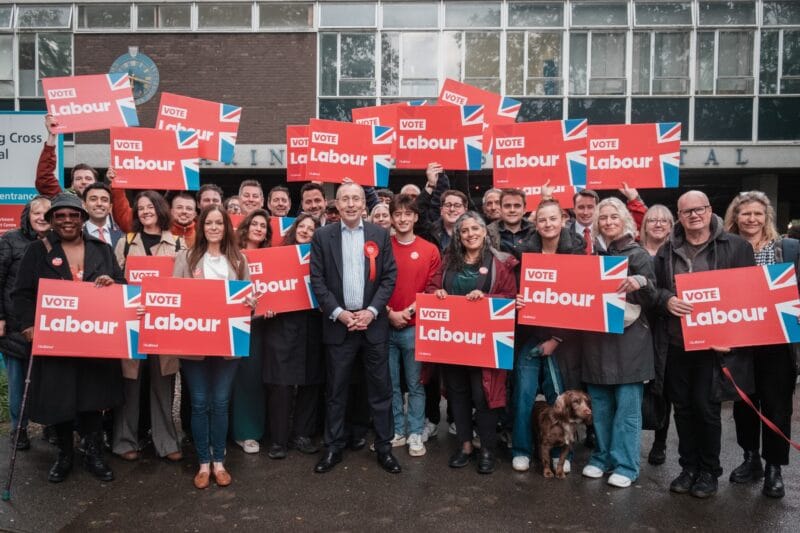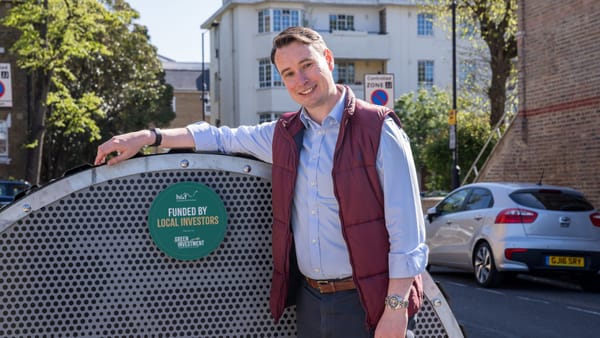An Insight into the Political Life of Andy Slaughter

I had the privilege of sitting down with Andy Slaughter, the newly re-elected MP for Hammersmith and Chiswick, as he shared his experiences and insights into life as a politician. Having represented West Londoners for almost 40 years, including more than a decade as the MP for Hammersmith, Andy’s career in public service has been both long and deeply impactful. In our conversation, we discussed his journey into politics, the daily demands of his work, and the challenges and rewards of representing his constituents.
A Day in the Life of an MP
When asked what a typical day looks like for him, Andy’s response was straightforward: no two days are the same. The spectrum of responsibilities he handles is vast, from representing individual constituents to navigating national issues in Parliament.
At the core of his work is assisting constituents with their problems, which can range from issues such as immigration, housing, and antisocial behaviour to more personal matters like parking tickets or, tragically, violent crimes that haven’t been adequately addressed. According to Andy, MPs are increasingly becoming the first line of defence for people seeking help with these issues, as other services have diminished over the years.
“It’s much more demanding now than it was when I first started,” Andy explained, “There aren’t many other advice services left, so people rely on their MPs.”
This commitment to local issues feeds into his parliamentary work. Whether it’s making speeches advocating for the reopening Hammersmith Bridge or fighting for more funding for Charing Cross Hospital, Andy balances local needs with the broader legislative process. On a national level, his role involves the more traditional aspects of an MP’s job, such as making and passing laws, sitting on committees, and scrutinising legislation.
Recently, Andy took on a new role as the chair of the Justice Select Committee, a body that scrutinises the government’s policies and decisions. “Our job is to hold the government accountable,” Andy said, “We call witnesses, produce reports, and aim to improve decision-making or sound the alarm when something’s going wrong.”
The Road to Politics
Andy’s journey into politics wasn't planned when he was younger. “I was always interested in politics, but I didn’t actively pursue it at first,” he shared. His involvement started in the early 1980s, during a particularly challenging period for the Labour Party. With Margaret Thatcher at the height of her power, Andy, whose views leaned towards Labour, decided to take action.
“In 1983, Labour was struggling. I could have sat back and complained, but instead, I decided to roll up my sleeves and get involved. I knocked on the door of the local Labour Party office and helped with the election campaign.”
This hands-on approach to politics is something Andy still values today. Over time, he built a network through community and social functions, working with local organisations and constituents to make a difference.

Connecting with the Community
When it comes to connecting with his constituents, Andy believes there’s no substitute for face-to-face interaction. “Knocking on doors is time-consuming, but it’s the most effective way to hear from people directly,” he said. While pamphlets and mail campaigns have their place, he believes they can easily get lost in the shuffle. “In certain areas, talking to people directly is the best way to get your message across and understand their concerns.”
This personal approach is key to Andy’s ongoing engagement with the people of Hammersmith and Chiswick. He’s passionate about understanding the challenges they face and working to address their needs.
Tough Decisions and Navigating Challenges
Andy acknowledged that the hardest part of his career has been making difficult decisions when consensus is impossible. “It’s easy when everyone agrees,” he remarked, “but that’s rare.” One such challenge arose when the Labour government under Gordon Brown proposed expanding Heathrow Airport with a third runway. While there was a strong economic case for the project, Andy opposed it due to the environmental harm it would cause to his constituents in West London.
“You can’t be 40% in agreement with a policy,” he said. “You have to take a stand, even if it means going against your party.” This vote is one of many examples where Andy chose to follow his principles, even when it wasn’t the easiest path.

Advice for Aspiring Politicians
For those looking to follow in his footsteps, Andy offers pragmatic advice: phase politics into your life rather than diving in headfirst. “There are no educational requirements to enter politics, and that’s how it should be,” he explained. Politics is open to everyone, regardless of background or formal qualifications.
He advises aspiring politicians to balance their involvement with a career outside of politics, especially at the beginning. “Some people go straight from university into politics and do well, but it’s a lot of responsibility, and it’s not for everyone. I suggest easing into it gradually, so you don’t spread yourself too thin.”
With more independent candidates running in each election, Andy believes there are numerous opportunities for people to get involved in politics without feeling tied to a particular party.
Staying Motivated in Tough Times
Politics can be a demanding and all-consuming career, with hundreds of emails to respond to each day and a constant flow of work. How does Andy manage to stay motivated and focused when the pressure mounts?
“It’s easy to get swallowed up by it all,” he admitted. His strategy involves time management, prioritisation, and making room for relaxation. “You have to find time to unwind and enjoy the little things. If you don’t, things can quickly get on top of you.”
Andy’s passion for public service is evident, and his dedication to his constituents is unwavering. Despite the challenges, he remains committed to making a difference. For Andy Slaughter, politics isn’t just a career – it’s a lifelong calling to help others and improve the community he serves.




